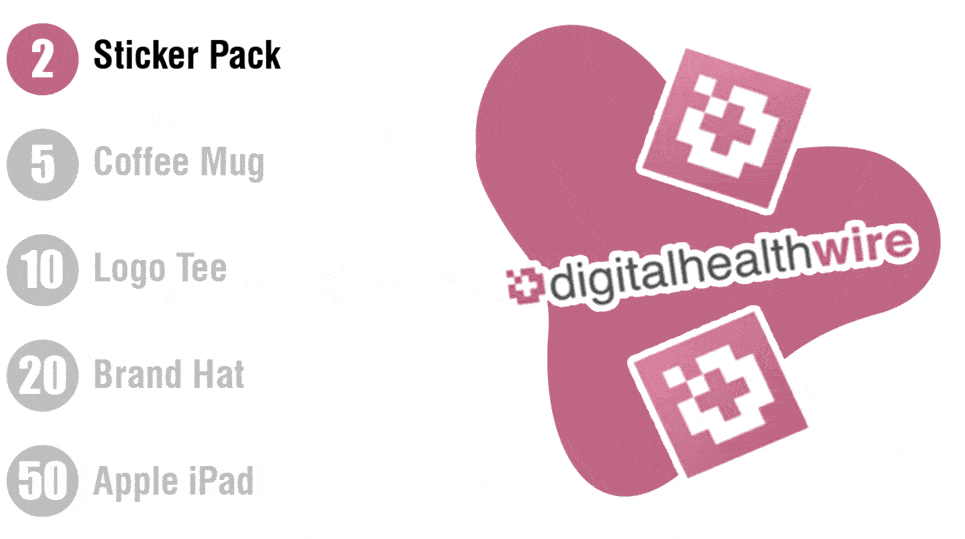|
Teladoc Posts Solid Q2 | Amazon HealthScribe
July 27, 2023
|
|
|

|
|
Together with
|

|
|
|
“In the end for me, servant leadership is about identifying good people, preparing them to do the right thing, getting them the tools they need (not necessarily what they want) to do the right thing, then getting out of their way.”
|
|
Cape Cod Healthcare CMO William Agel, MD, MPH
|
|

|
|
Teladoc Health just released its second quarter earnings, and the results were somewhere between a return-to-form and an absolute home run.
Here’s Teladoc’s Q2 by the numbers:
- Revenue jumped 10% year-over-year to $652M
- Net loss shrank to $65M from $69M in Q1 (last Q2 saw a $3B Livongo writedown)
- Integrated Care revenue up 5% YoY to $360M
- BetterHelp revenue up 18% YoY to $292M
- Full-year revenue guidance raised to $2.6B-$2.67B, up $25M at the low end
Those figures helped push Teladoc’s stock up over 25% on Wednesday, with the narrowing loss and improved guidance both welcomed by investors. The conference call didn’t hurt either, and the four main themes that Teladoc drove home in the analyst Q&A were:
- BetterHelp customer acquisition costs are stabilizing after being a pain point over the last year. CEO Jason Gorevic said that consumer demand “has proven resilient through the first half of the year, even with the financial pressures that many households are facing.” BetterHelp now has 476k users, up 17% YoY.
- The Integrated Care segment saw growth across all chronic condition management programs. Digital diabetes prevention got a special callout, and over a third of Teladoc’s chronic care members are now enrolled in multiple programs. Total chronic care program enrollment was 1.07M at the end of Q2 (up 7% YoY), and CFO Mala Murthy said the 45k new enrollees drove the Q2 revenue increase.
- GLP-1 drug costs landed a major spotlight, with Teladoc’s employer clients clearly scrambling for ways to keep them contained. Teladoc is launching a new weight management program in Q3, giving patients access to GLP-1 drugs and personalized care plans developed with a physician to help manage outcomes and costs.
- AI, AI, AI. It wouldn’t be a 2023 earnings call if they skipped it. Teladoc apparently uses over 60 AI models in its products, ranging from member engagement to its virtual care queuing system. Leadership also drummed up hype for the Microsoft partnership expansion, which will integrate Azure OpenAI and Nuance DAX into the Solo platform.
The Takeaway
All-in-all, Teladoc delivered a great second quarter, with every segment contributing to the revenue gains and proving that expanding within existing clients is a solid growth strategy. If there was something to harp on, it was the $200M worth of stock-based compensation that Teladoc is handing out this year, a pretty mind blowing total that’s a primary contributor to the company’s net loss.
|




|
|
Glooko Outcomes Using Real-World Data
Modern diabetes management requires personalized, always-on, and connected care. Explore Glooko’s latest clinical studies to see how remote patient monitoring is making real-word improvements across multiple glycemic outcomes.
|
|
Creating an Exceptional Engagement Experience
With a surge in experience‑oriented disruptors entering the healthcare industry, patient engagement is becoming a crucial competitive differentiator. Get your copy of Nuance’s guide to delivering intelligent interactions and a better experience at every touchpoint.
|
|
Medallion Unites Family Care Center’s Credentialing Process
As Family Care Center set out to expand its behavioral health services, it needed a scalable provider credentialing solution so that its staff could keep focusing on patient care. Find out how Medallion’s CAQH-integrated platform helped Family Care Center onboard its providers faster by letting them complete their applications in two days instead of two weeks.
|
|
- Amazon HealthScribe Launch: Amazon is throwing down the clinical documentation gauntlet, unveiling a new HealthScribe solution that automatically creates preliminary transcripts of patient visits, identifies key details, and generates summaries that can be synced to the EHR. It’s a little early to tell how HealthScribe distinguishes itself from Nuance and Suki, but Amazon says that its Bedrock generative AI tools will promise “faster and easier” capabilities, starting with general medicine and orthopedics.
- DiMe Regulatory Course for Prod Dev: DiMe launched an excellent course for Unlocking Regulatory Success for Digital Health Product Developers, which covers step-by-step instructions on building a full regulatory strategy, differentiating products, and avoiding common regulatory risks. The course itself is right in the Goldilocks-zone for any teams developing a regulated product, providing a complete guide to navigating the clearance process, yet keeping the content approachable enough to not feel overwhelming.
- Health Tech Leads for Female Founders: The share of female founders in health tech rose more in the last six years than in any other sector, with Carta data showing that the percentage climbed from about 15% in 2015 to 22% in 2022. Funding in women’s health tech also fell just 10% between 2021 and 2022 (vs. a 48% drop for the broader health tech sector), driven by the reversal of Roe v. Wade, the expansion of reproductive health benefits amid a tight labor market, and a mental health crisis that’s disproportionately impacting teenage girls.
- Healthcare Advertising Sea of Sameness: Cleveland Clinic CMO Paul Matsen gave Marketing Brew a sneak peak at the system’s strategy for standing out from the “sea of sameness” in healthcare advertising. The secret sauce seems to be writing SEO-friendly articles then investing in Search to reach the right patients, and the results speak for themselves. Cleveland Clinic’s website is projected to reach 1.2 billion visits this year due to the rapid growth of its Health Essentials content, which helps patients understand topics ranging from sugar substitutes to gender identity.
- Hippocratic Lands Another $15M: Hippocratic AI put a $15M cherry on top of the $50M seed round it closed just two months ago. Our initial coverage has the full rundown on Hippocratic’s “safety-focused” generative AI, but the latest announcement also included details on the company’s Founding Partner Program to guide model development, validate clinical safety, and engage in reinforcement learning from clinician feedback. Partners include Cincinnati Children’s, Universal Health Services, Sondermind, and others.
- Happiness Studies Widely Flawed: A massive systematic review in Nature Human Behaviour found that happiness is hard to come by, or it was at least hard to improve in the 532 studies analyzed. Nearly 95% of experiments that increased exposure to nature, exercise, or meditation lacked sufficient statistical power to prove a benefit – hard to believe considering how widely accepted the power of those activities is. Further, only 11% of the studies were pre-registered or tested those strategies on subjective well-being in healthy individuals.
- Blue Shield of California + Microsoft: Blue Shield of California is partnering with Microsoft to build an integrated data hub called the Blue Shield Experience Cube on the Azure cloud, with the goal of making member data more accessible to improve care management. The partnership follows shortly behind BSC’s collaboration with Google Cloud to pilot an AI system for expediting prior authorizations, and Microsoft will now help the payor turn its attention toward polishing the experience of its 4.8M members.
- Virgin Pulse Homebase Moves the Needle: Virgin Pulse released promising results from a year-long analysis of its Homebase for Health platform (n=90k members), finding it successful in driving behavioral changes that improve obesity, hypertension, and high blood sugar. Employers utilizing Homebase saw 8-15% fewer work absences, 10-25% less turnover, and a 5-10% reduction in workers’ compensation, as well as a return of $3.17 for every $1 invested.
- Brell Platform Roll Out: Brell Health rolled out a new imaging platform to bring a “human touch” to radiology reports by including “a face and a personality” that makes the findings more relatable for patients. The Brell platform integrates virtual specialist consults with both an image-viewer and a recorded video of the findings for asynchronous communication. Other patient-centric features include a radiology dictionary that explains key terms and supplementary images to contextualize the results.
- Cigna Sued Over Denial Algorithm: A lawsuit filed in California accuses Cigna of using an algorithm for claim denials rather than individually reviewing each case, which state law mandates. A ProPublica expose found that Cigna denied more than 300k requests over a two month period using a PXDX algorithm that automatically identifies discrepancies between diagnoses and its coverage. An average of 1.2 seconds for reviewing each case was enough to push patients toward a class-action suit.
- The AHA on VBC: The American Heart Association’s new policy statement for clinicians treating cardiovascular disease advises a shift away from FFS models towards value-based reimbursement, with the primary focus on healthcare quality and cost. The policy outlines four key themes for successful value-based care models, including 1) adequate focus on quality of care, 2) the use of reimbursement as a tool to improve equity, 3) moving towards more flexible funding, and 4) tapping into clinicians’ intrinsic motivation.
|
|
Clear Arch Health Reduces Readmissions at Altru
When Altru Health System set out to reduce hospital readmissions, it turned to Clear Arch Health to find the solution. Learn how Clear Arch Health’s complete RPM platform and clinical monitoring system helped Altru lower readmissions while improving post-acute care quality.
|
|
Save Time & Minimize Risk with connectRN
connectRN takes the work out of hiring at scale. connectRN’s W2 staffing solution protects you and your business from liability. Plus, their credentialing team handles everything from state licensure to background checks, and you’ll have access to it all via their user-friendly platform. Learn more.
|
|
Upgrade Your Prescribing Workflows
Whether you’re a care delivery organization or building products that have prescribers, there’s no need to build your prescribing workflow from scratch. Find out how connecting your prescribers to clinical decision support powered by real-time drug data can help provide the patient-centered insights needed for medication success.
|
|
|
Share Digital Health Wire
|
|
Spread the news & help us grow ⚡
|
|
Refer colleagues with your unique link and earn rewards.
|

|
|
|
|
Or copy and share your custom referral link: *|SHAREURL|*
|
|
You currently have *|REFERRALS|* referrals.
|
|
|
|
|